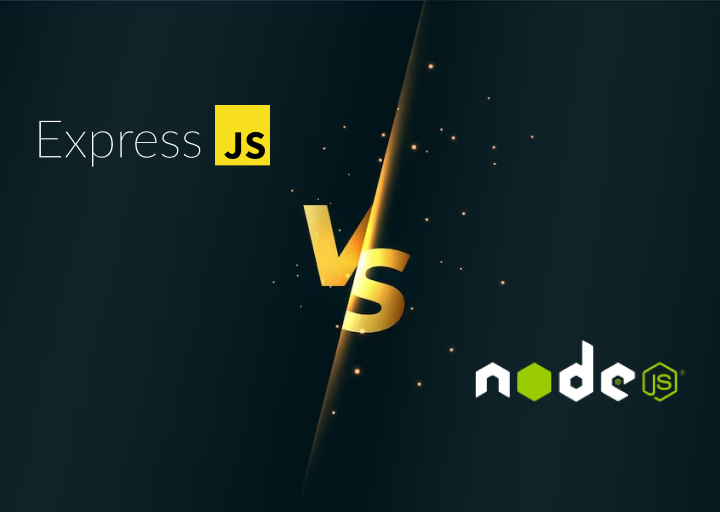NodeJS revolutionized server-side coding by making JavaScript coding possible. Its performance outclassed traditional LAMP server APIs and made coding faster, powerful, and flexible. But for those who wanted something simpler, faster, and less complicated, ExpressJS framework was invented.
What is ExpressJS?
ExpressJS is a prebuilt NodeJS framework that simplifies the creation of server-side web applications. It inherits NodeJS’s performance and adds simplicity, minimalism, flexibility, and scalability to its characteristics.

ExpressJS and NodeJS Performance
NodeJS is powerful in handling large numbers of users due to the Google V8 JavaScript engine’s lightning-fast executions and the Event Loop, which manages all asynchronous operations to avoid inefficiency. ExpressJS inherits these performance features of NodeJS.
NodeJS vs ExpressJS –
Coding Ease of coding is the primary advantage of using ExpressJS over NodeJS. It reduces programming time in half and is highly scalable and flexible. Combining ExpressJS with AngularJS makes a complete JavaScript paradise, where front-end coding is handled with AngularJS, and back-end coding is left to ExpressJS.
The MEAN Stack
Combining AngularJS, ExpressJS, and NodeJS results in a complete technology stack known as MEAN stack. This stack eliminates the need for LAMP languages, replacing the MySQL database with something better, easier, and more robust, such as MongoDB.
Conclusion
ExpressJS and NodeJS are both powerful tools for server-side coding, but ExpressJS offers simpler coding and faster development time. Combining ExpressJS with AngularJS results in a complete JavaScript paradise, and the MEAN stack eliminates the need for LAMP languages.